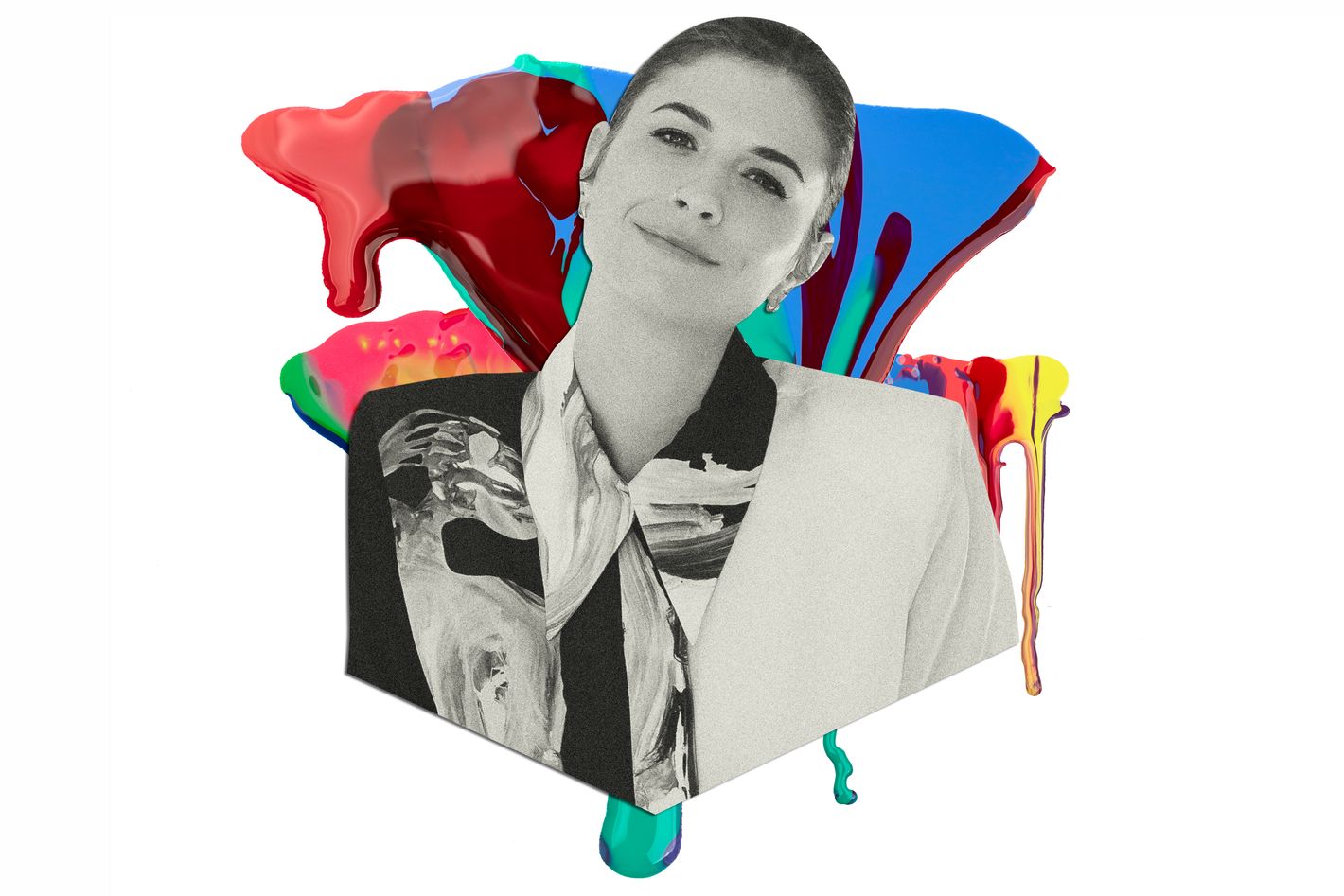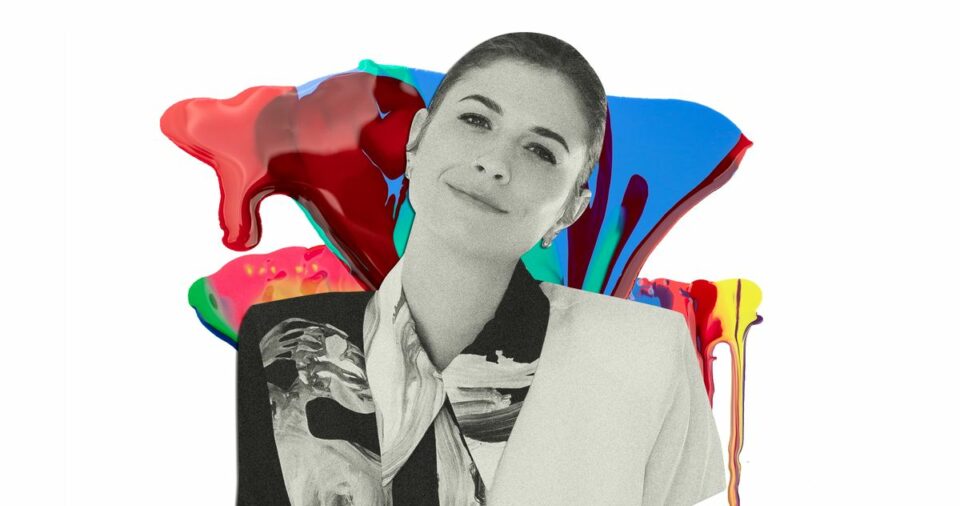[ad_1]

Accurate information about sex is hard enough to come by for straight people, so what’s a curious queer person supposed to do? Enter Casey Tanner, a sex therapist and social-media educator whose account @queersextherapy is a must-follow for lost souls furiously searching “am I a lesbian reddit.” There, she shares infographics, self-reflection prompts, and personal stories that help demystify sex and everything surrounding it. What’s muffing? How do you talk to your partner about non-monogamy? Why does dysphoria sometimes worsen after you come out? “There is so much misinformation people have about their bodies and how they ‘should’ work,” Tanner says. Her new book, Feel It All, challenges readers to let go of these assumptions and figure out what feels good for themselves.
Tanner, who uses she/they pronouns, grew up religious and conservative. Then, while sorting through her mental health, she realized that she was queer. “I remember Googling ‘what is a gay outfit,’ and then putting those clothes on, and then Googling ‘where is a gay bar,” she says. Her coming-out experience inspired a desire to educate; she went to graduate school to train as a sex therapist and eventually founded her own practice, the Expansive Group, in 2020. She came up with @queersextherapy a little before that, catering to a new demographic of people questioning their identities during the pandemic, and also co-hosts and produces the Safeword podcast. Her aim is to expand our conception of what’s “normal” in intimate relationships with ourselves and others, but at the same time, Tanner is mindful to not position herself as the ultimate authority on queerness. “I try to lead with porosity, naming that I’m on this journey alongside my followers,” she says. “I still sometimes feel like the 22-year-old who could barely say the word ‘lesbian’ out loud.” Tanner lives alone in Brooklyn, New York; here’s how they get it done.
On her path to becoming a sex therapist:
I started out going to an Evangelical Christian Bible school to become a pastor. My mental health was really suffering at that time, and I didn’t know why. It was through doing work in therapy that I started to put things together — that I was queer and living in a space where being queer was shamed. In fact, at the school that I went to, you could be expelled for being queer. This was back in 2013, and there weren’t a lot of people connecting the dots between sexuality and mental health. Once I did, I made my life’s work out figuring out how to get that message out and help people move through the shame I experienced.
On a typical morning:
I wake up around 7 a.m. and try to not open my laptop until 9 a.m. I’m making my coffee, sitting outside if I can, and reading for fun, usually fiction and poetry. Right now, I’m reading All Fours, by Miranda July. The weirder, loftier, and more creative, the better. I like to be in my left brain as much as possible. Once I open my laptop, I try to get as quickly to inbox zero as possible. Then I shift into whatever task is at hand on that particular day.
On staying organized:
I like to have each day of the week designated for a particular headspace. On Monday, I’m thinking about my therapy practice, the Expansive Group. Tuesday is my film day, when I’m creating all of my content for Instagram and TikTok. Wednesday is usually my writing day, where I’m either writing my book or posts or an article. Thursday, I mostly work with my social-media team on strategy. Then I schedule zero meetings every Friday and let life happen.
I have a text thread with myself on my phone that is just a stream of things I want to make sure I remember. I also schedule all of my tasks as calendar events, so instead of keeping a to-do list, I will literally estimate the amount of time it’ll take and schedule them in. That’s how I make sure I don’t overbook myself.
On founding an inclusive therapy practice:
Right out of grad school, I was apprenticing for other practice leaders. I saw many things that were going well and also huge cultural problems, because therapists are human beings, too. So I tried to build what I call a trauma-informed business model, where we approach not just our clients but our employees as people who are all coming with some kind of trauma. One thing that was super important was not just talking about equity, but putting real numbers behind it — at least 40 percent of our team and at least 50 percent of the leadership team would be BIPOC, doing a lot of consulting with especially Black and Indigenous business leaders. Folks were interviewing me just as much as I was interviewing them.
On unexpectedly becoming a social-media influencer:
I shared one post about ethical porn on my personal account that went viral, and afterward started talking more about the intersection of queerness and sexuality. The fact that the handle “queersextherapy” hadn’t been taken yet is so telling. When the pandemic hit, we were all forced to slow down and look at ourselves in the mirrors, and many people started coming out. I think people really flocked to my account. Then I realized, Oh, I could get paid to do this. So it was becoming an influencer by accident that allowed me to fund the creation of the Expansive Group.
On deciding what to post:
Normally, my social-media manager will come to me and say, “Hey, Casey, this is the number of posts we need from you, here’s some of the themes we’re seeing.” We also have Gen-Z content coordinators and community coordinators who describe themselves as “chronically online,” so they keep their finger on the pulse for us. I usually write about 15 posts in a two-day period, and that process typically starts with me asking, “What is happening in my life right now? What are the conversations I’ve been having with people in my community?” I certainly try to only write posts about identities I have and can relate to, but we bring in other writers with other experience. I am constantly being called out and called in. Sometimes the feedback we get isn’t even necessarily that we were wrong, but that there were other perspectives and angles that we didn’t consider. And so a lot of times we’re thinking, Okay, how do we make sure that we’re not just telling a single story about this identity?
On dealing with impostor syndrome:
I’m somebody who, if you don’t know better, doesn’t read as particularly queer. I still get mistaken for a straight person. I remind myself that just because I’m @queersextherapy doesn’t mean I’m actually claiming to be anything but myself. And that gives me permission to not always know what I’m talking about. I recently went through a big breakup about six months ago, right before my book was released, and that was a moment where I was like, Oh, my gosh, are people going to take me seriously? And then it’s reminding myself that a relationship ending doesn’t mean a relationship has failed. Even people who are single have a right to teach about relationships.
On balancing privacy and a public persona:
The advice I’ve received is “get personal, but get personal months after it’s happened.” What I tend to do now is wait three to six months after a life event and come back to it when I’m at a place where comments aren’t going to massively impact my own experience. If I’m totally honest, I felt pressure to be personal and use photos because that is what social media prioritizes. People don’t want that very zipped-up, professional graphic. People are connecting through storytelling.
On TikTok therapy buzzwords:
I’ll often get journalists reaching out to me to comment on the latest trend, and I’ll say no. Or if I do jump into the conversation, it’s to offer a slightly different perspective. For example, talking about “red flags” was huge on TikTok. The danger of every single thing that triggers a “red flag” is that we’re avoiding growth. And so I chose to make a post that was like, “How do you know the difference between a trigger and a red flag?”
On winding down at the end of the day:
Every Wednesday, I buy my friends dinner and we watch Survivor at my place. I spend a lot of time with my three cats. We’ll sit on the balcony together and listen to music or read. I like to go to Prospect Park. I’m a big foodie, so I’m following new restaurants. But my friends are my lovers, so I spend most of my free time with them.
This interview has been edited and condensed for length and clarity.
[ad_2]
Cat Zhang , 2024-06-03 13:00:16
Source link



